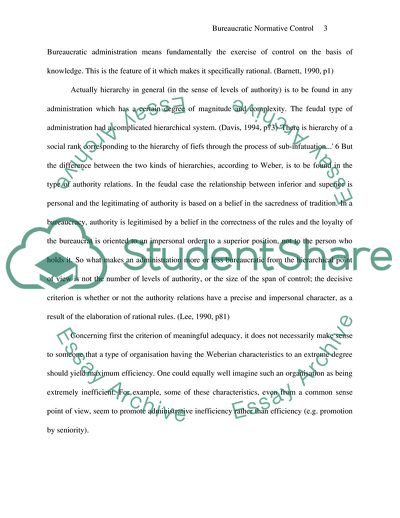Cite this document
(Bureaucratic and Normative Control Essay Example | Topics and Well Written Essays - 2500 words, n.d.)
Bureaucratic and Normative Control Essay Example | Topics and Well Written Essays - 2500 words. https://studentshare.org/social-science/1705833-compare-and-contrast-bureaucratic-and-normative-control
Bureaucratic and Normative Control Essay Example | Topics and Well Written Essays - 2500 words. https://studentshare.org/social-science/1705833-compare-and-contrast-bureaucratic-and-normative-control
(Bureaucratic and Normative Control Essay Example | Topics and Well Written Essays - 2500 Words)
Bureaucratic and Normative Control Essay Example | Topics and Well Written Essays - 2500 Words. https://studentshare.org/social-science/1705833-compare-and-contrast-bureaucratic-and-normative-control.
Bureaucratic and Normative Control Essay Example | Topics and Well Written Essays - 2500 Words. https://studentshare.org/social-science/1705833-compare-and-contrast-bureaucratic-and-normative-control.
“Bureaucratic and Normative Control Essay Example | Topics and Well Written Essays - 2500 Words”. https://studentshare.org/social-science/1705833-compare-and-contrast-bureaucratic-and-normative-control.


